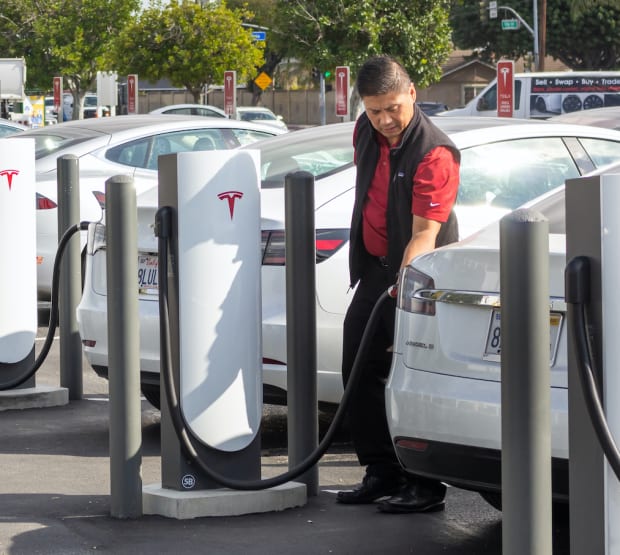There are a lot of upsides to owning an electric vehicle.
For one, owners don't have to worry about the constantly fluctuating price of gas.
That was in stark display earlier in 2022 as the price of a gallon of gas averaged well over $6 in some states, and consumers wrestled with a 9.1% inflation rate.
But the other perks you can expect are less obvious at first, though perhaps more welcome in the long run.
Those include being able to charge your car at home; more user-friendly interfaces in new vehicles; and a market that is soon to be flooded with new EVs at virtually every price point and for every possible buyer.
The dawning of the age of the EV is getting a lot of attention.
Now, consumers have been eyeing a new suite of legislation being pushed through Congress this week.
If passed, it will provide a whole host of tax perks, financial incentives and federal laws to help EVs transition into being the dominant mode of transportation in America.
Why Your EV Might Not Get a Climate Bill Tax Credit
But there are still a lot of questions for consumers.
Those are joining a chorus of opposition from automakers, who say that under the bill’s current terms, 70% of EVs sold in America today wouldn’t even qualify for the $7,500 electric vehicle tax credit.
That’s because the climate bill requires that all the parts in an EV’s battery have to be made in America or via an American free trade partner in order to receive the credit.
“New requirements include that the cars must be assembled in North America and that materials and ‘critical minerals’ in the battery must come from the US or a country with a free trade agreement with the U.S.,” Electrek reports.
“These requirements are intended to spur domestic manufacturing and more diverse supply chains for EV materials, which are currently heavily reliant on one country.”

Automakers Push Back on New Climate Bill
That leaves out a huge chunk of the market, says John Bozzella, president and CEO of the Alliance for Automotive Innovation.
His group is pushing policy makers to grandfather in much of the existing EV inventory available to American buyers now. It estimates that as much as 70% of the current EV market in the U.S. won't qualify for the tax credit.
"Unfortunately, the EV tax credit requirements will make most vehicles immediately ineligible for the incentive,” Bozzella said in a statement.
“That’s a missed opportunity at a crucial time and a change that will surprise and disappoint customers in the market for a new vehicle. It will also jeopardize our collective target of [40% to 50%] electric vehicle sales by 2030.”

You May Get a Major Tax Break From the Climate Bill
However, if auto lobbyists and legislators can iron out the details, the bill does have some sweet spots for automakers.
That includes unlimited credits and the ability to apply the tax credit when a buyer purchases a vehicle, instead of later declaring it on their taxes.
To top it off, it will also remove a long-loathed cap on tax credits to 200,000 cars per manufacturer.
The credit has a long lifespan. It is slated to be renewed from passage until December of 2032.
Tesla Fans May Find a Lot to Hate
That’s a long time to realize financial gains from a piece of legislation.
But don’t expect it to make many of EVs first adopters happy, because it leaves out owners of higher-end models like iconic Teslas (TSLA).
Thus far, CEO Elon Musk hasn't weighed in on that topic.
“Further, vehicles must have an MSRP of under $55K for cars and $80K for SUVs, trucks and vans, otherwise they don’t count, leaving out several Tesla configurations and trucks like the USA-made Rivian,” Electrek reports.
“And buyers can only take advantage of the credit if they make under $150K a year ($300k filing jointly) — which will likely affect some of these higher-end car buyers.”







